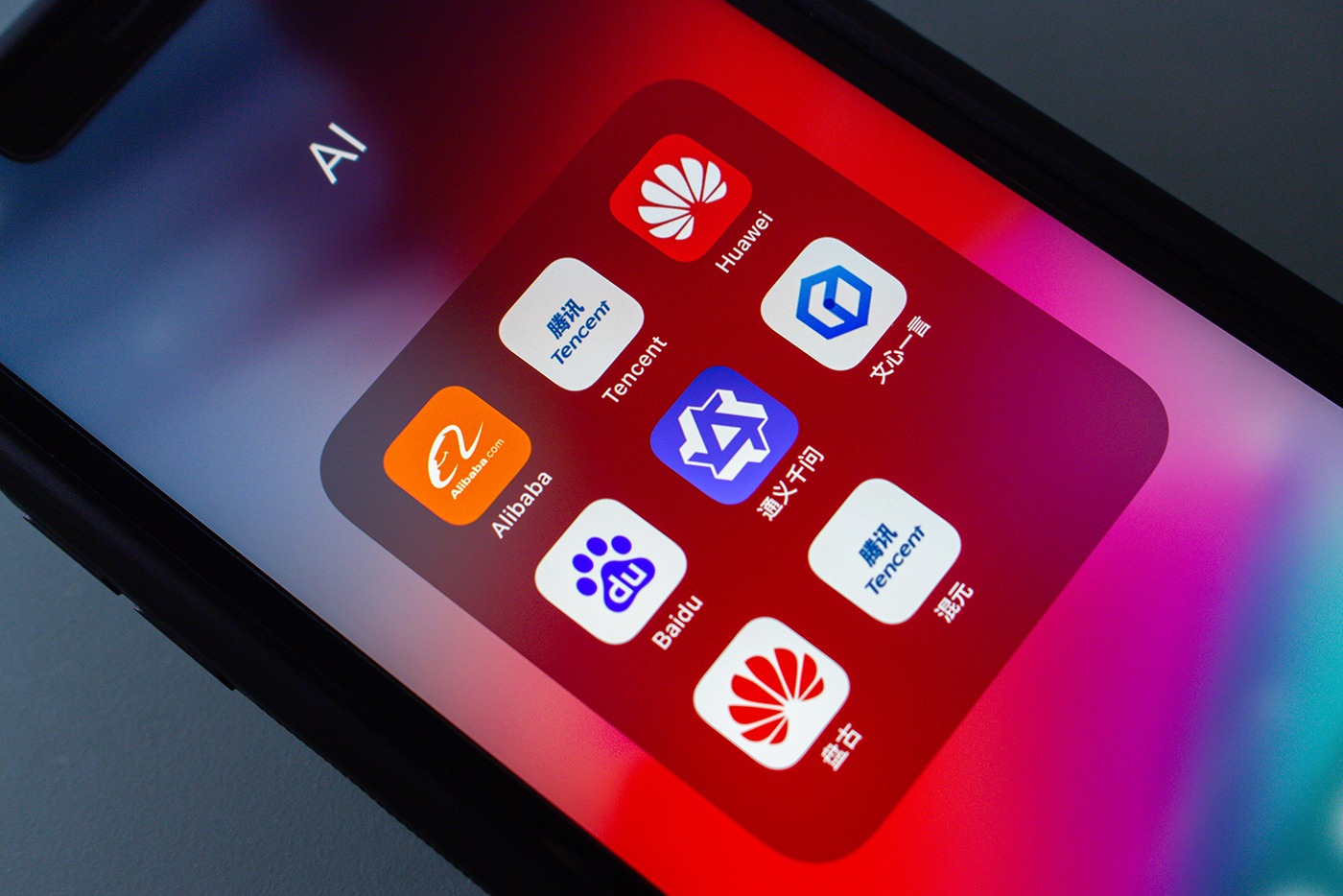The Amazing Ways Chinese Tech Giant Alibaba Uses Generative Artificial Intelligence
20 October 2023
Not to be outdone in the generative artificial intelligence (AI) race, China-based tech giant Alibaba has recently unveiled a number of its own tools and models.

Its flagship is its ChatGPT challenging large language model (LLM) called Tongyi Qianwen - cited as one of the largest and most powerful generative chatbots produced so far.
Alibaba is best known in the West as an e-commerce titan, in many ways analogous to Amazon. Like that US company, it's also a global leader in cloud services provided through its subsidiary Alibaba Cloud.
Its dominance across retail and web services means it is well-positioned to create apps enabling its business customers to launch their own generative AI experiments, unleashing its transformative power to drive sales and create new forms of customer experience.
So, let's take a look at some of the ways it’s doing this and how its efforts differ from those of its competitors on both sides of the globe.
Truth From a Thousand Questions
Although it doesn’t have an official English name as of now, this is a close, literal translation of the Chinese name Tongyi Qianwen. The name illustrates the fact that this is positioned firstly as a question-and-answers bot, much like ChatGPT.
However, like its competitors, it's also capable of operating as a coding co-pilot, generating and automatically error-checking code in a number of computer programming languages.
Use cases that have been identified so far include integrations with its retail business, Taobao, where it has been used to create a service known as Taobao Ask. Currently, in beta testing, the service will enable users to ask for customized product recommendations, as well as comparisons between different products and services. According to users who have had access to the test, it's able to offer improved recommendations compared to the traditional method of searching.
It has also been integrated into Tingqu, the voice AI that powers its Echo-like smart speaker device, Tmall Genie, and its workplace messaging app, DingTalk. Here, it’s able to draft summaries of meetings, create personalized schedules, produce copywriting for marketing purposes and generate action plans or to-do lists based on sketches and handwritten notes.
As Zhou Jingren, Alibaba Cloud's CTO, states, "As we gradually integrate the Tongyi Qianwen model into our products and services, we hope users can reap the benefits from these compelling AI innovations for their work, study, play and interaction with each other.”
Beyond this, Alibaba's strategy appears to be focused on enabling businesses to develop their own generative AI solutions built around Tongyi Qianwen and other generative models. In pursuit of this aim, it has launched Modelscope, a model-as-a-service platform providing access to hundreds of pre-trained generative tools through its cloud platform. It has established partnerships based on rolling out its technology with smartphone manufacturer Oppo and Zhejiang University.
Image Generation
Another of the primary use cases of generative AI is image generation, and Alibaba is on board with this trend thanks to its Tongyi Wanxiang model. This is based on diffusion technology similar to that used by Stable Diffusion or Midjourney, where computers learn to build images by adding "noise" to data and learn how to rebuild them by reversing the process.
A natural language model (Tongyi Qianwen) is then used to inject a text prompt containing instructions on how the new image should look. The Wanxiang model builds on existing diffusion methods by integrating a new model developed by Alibaba researchers known as Composer, giving greater control over the output of the model.
The Open Source Question
Unlike competing platforms like ChatGPT and Google Bard, Alibaba has chosen to open source Tongyi Qianwen and many of the models available through Modelscope.
This means the source code is publicly available and can be freely altered by anybody. Open-sourcing a technology can have several benefits for its creators, as it means it can incorporate improvements, alterations or re-engineering carried out by developers all over the world.
The trade-off is that everyone can peek inside it and find out exactly how it works – which is not the case for other models like OpenAI’s GPT-4, for example, which remains a black box.
Part of the reason for the decision to take this path, though, could have been to remain compliant with China's recently enacted AI legislation. This legislation – known as the Interim Measures for Generative Artificial Intelligence Service Management, requires providers of AI services available to the public to “take effective measures to improve the transparency of generative AI services."
It isn’t alone in choosing to go down the open-source route, however – Meta (formerly Facebook) did the same with its own Llama-2 LLM, which was also made available to the public this year. Although only after the source code leaked onto the internet. Just to further demonstrate how closely related all of the work being done on LLMs and generative AI is becoming, Alibaba also recently launched a model based on Llama-2, known as Megatron-Llama.
Regarding its own LLM, however, Alibaba has said that it will open-source two models, Qwen-7B and Qwen-7B-Chat, both of which are pre-trained on seven billion parameters.
Alibaba CEO Eddie Wu has stated that the two core priorities for his company moving forward will be becoming more customer-centric and more AI-driven.
With this, it has shown that it is more than ready to become an active participant in the "War of a Hundred Models" – a term coined by Tencent Vice President Jiang Jie to describe the current rush to build and deploy generative AI in the Chinese industry.
Related Articles
Will AI Solve The World’s Inequality Problem – Or Make It Worse?
We are standing on the cusp of a new technological revolution. AI is increasingly permeating every aspect of our lives, with intelligent machines transforming the way we live and work.[...]
How You Become Irreplaceable In The Age Of AI
In a world where artificial intelligence is rapidly advancing, many of us are left wondering: Will AI take our jobs?[...]
Why Apple Intelligence Sets A New Gold Standard For AI Privacy
In the rapidly evolving world of artificial intelligence, privacy concerns have become a hot-button issue.[...]
Can Your Device Run Apple Intelligence? What You Need To Know
Apple's announcement of Apple Intelligence has sent waves of excitement through the tech world.[...]
10 Amazing Things You Can Do With Apple Intelligence On Your IPhone
Apple Intelligence is poised to revolutionize the iPhone experience, offering a suite of AI-powered tools that promise to make your digital life easier, more productive, and more creative.[...]
Agentic AI: The Next Big Breakthrough That’s Transforming Business And Technology
The world of artificial intelligence is evolving at a breakneck pace, and just when you thought you'd wrapped your head around generative AI, along comes another game-changing concept: agentic AI.[...]
Sign up to Stay in Touch!
Bernard Marr is a world-renowned futurist, influencer and thought leader in the fields of business and technology, with a passion for using technology for the good of humanity.
He is a best-selling author of over 20 books, writes a regular column for Forbes and advises and coaches many of the world’s best-known organisations.
He has a combined following of 4 million people across his social media channels and newsletters and was ranked by LinkedIn as one of the top 5 business influencers in the world.
Bernard’s latest book is ‘Generative AI in Practice’.










Social Media